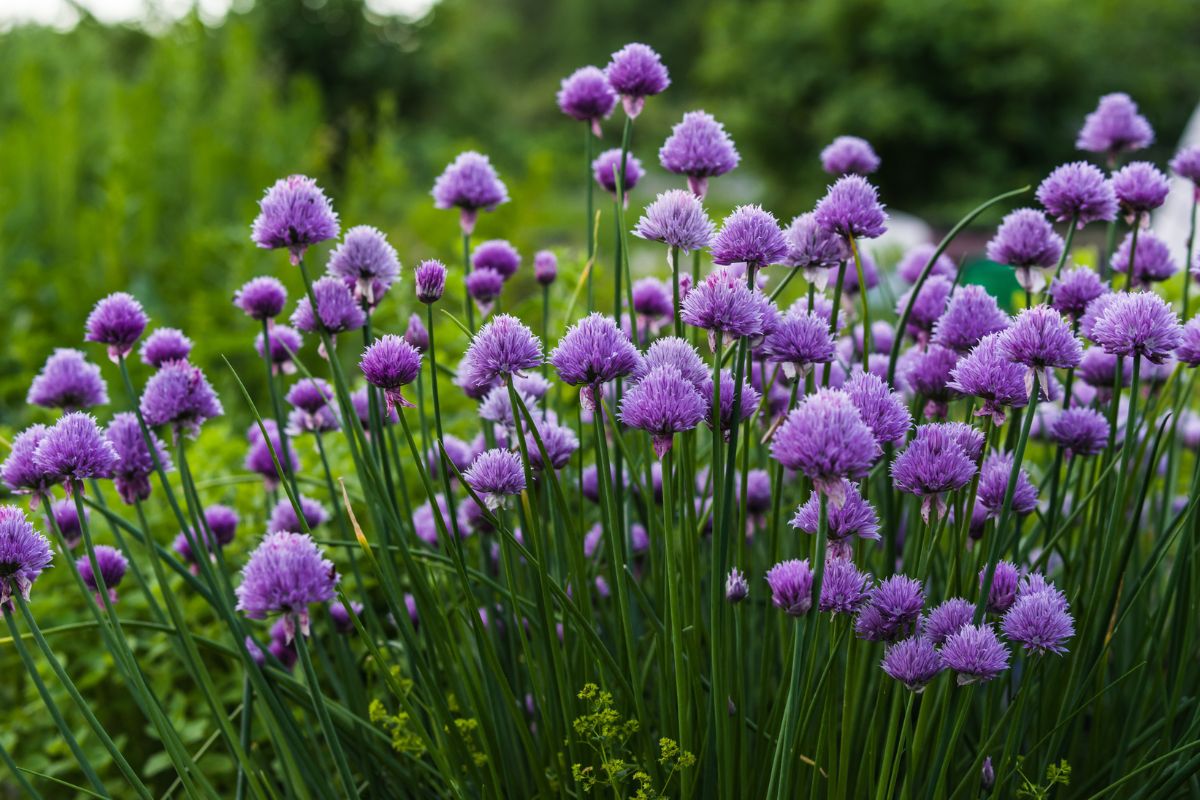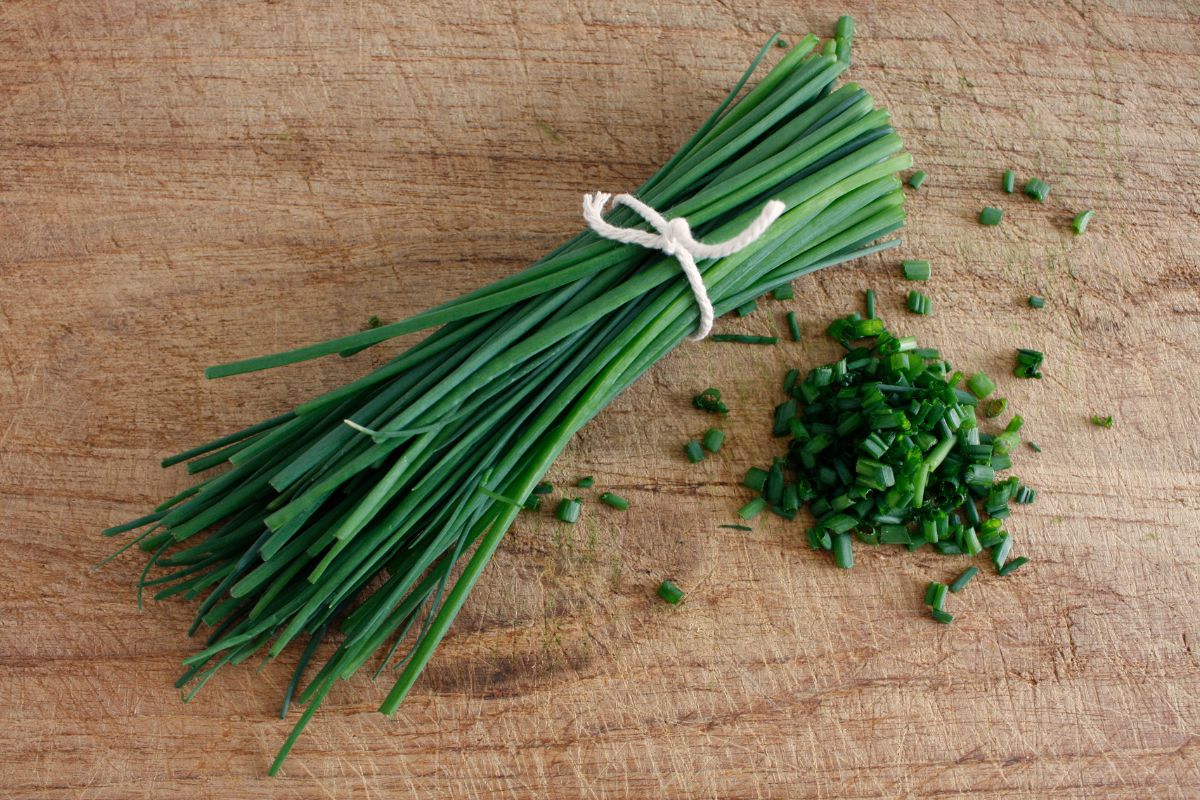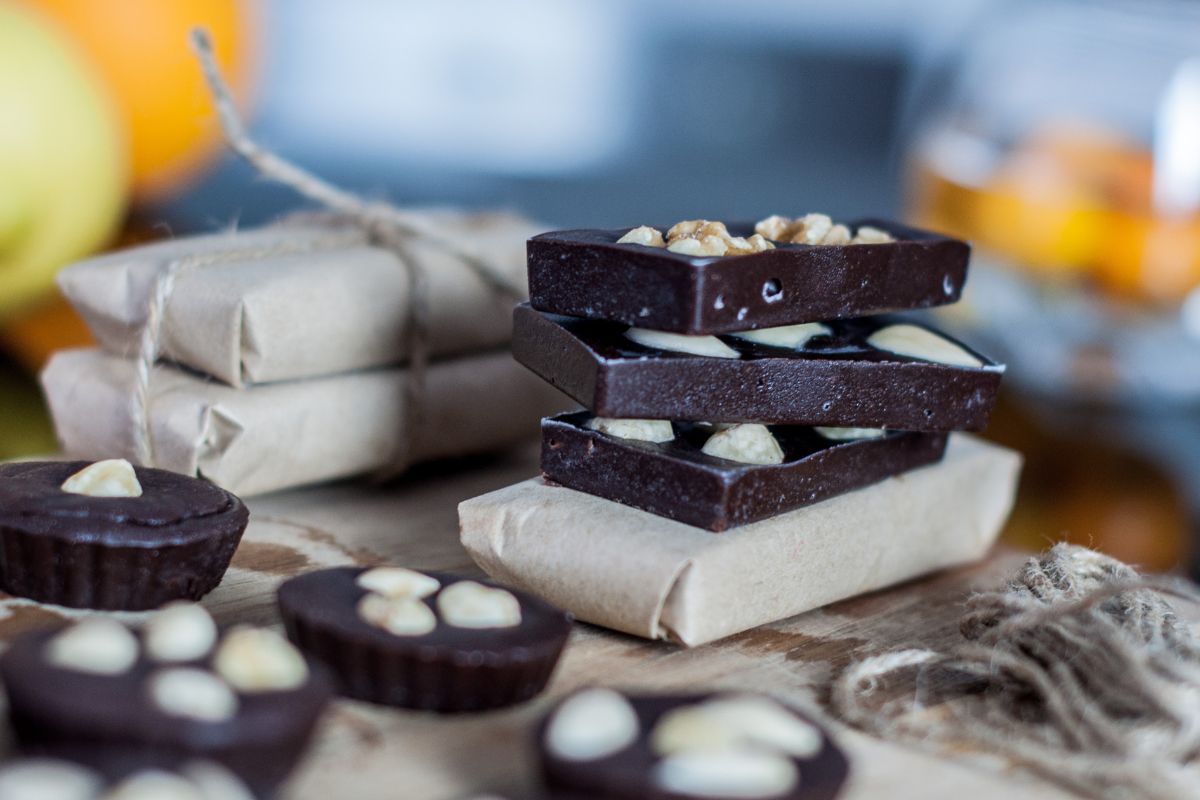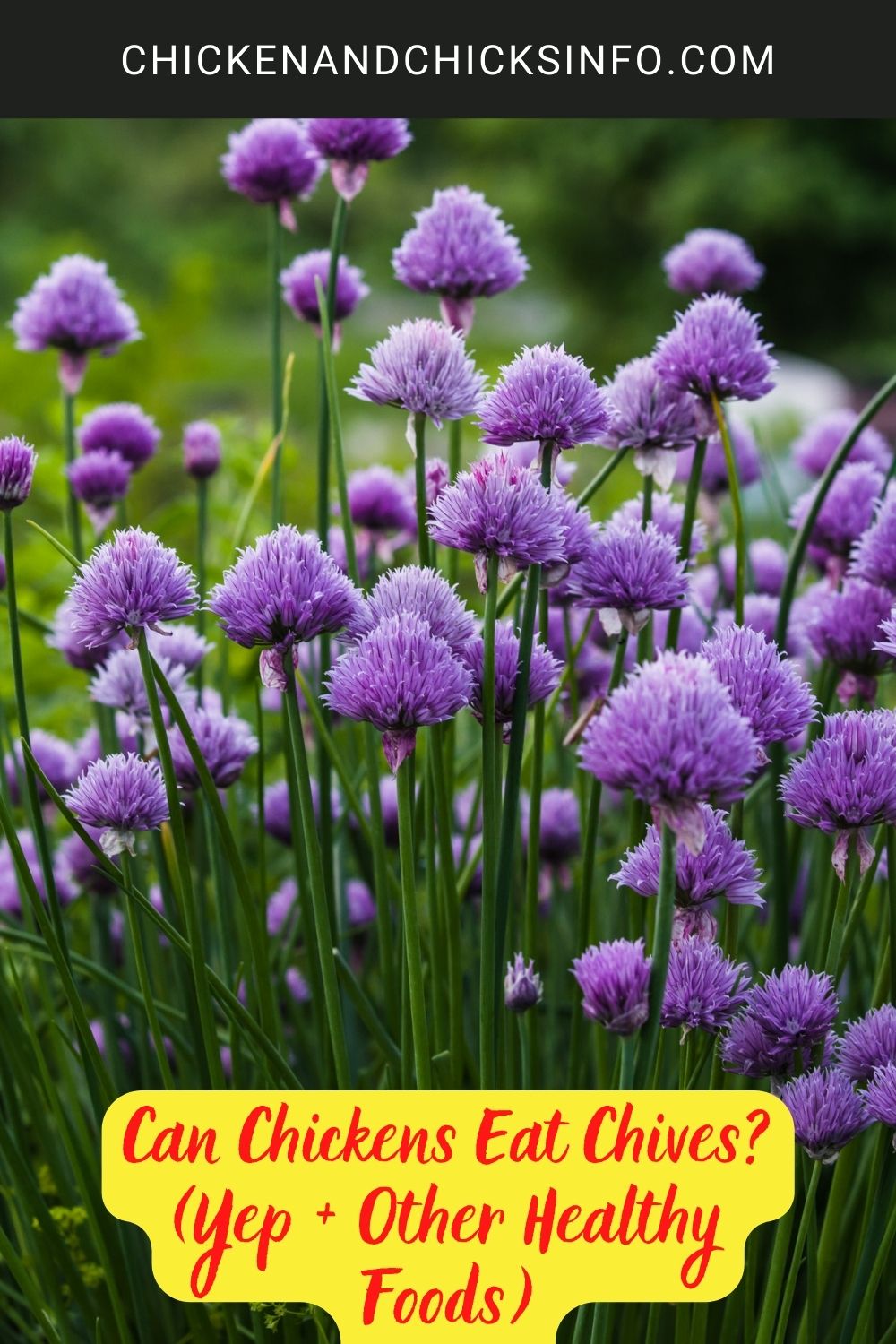
Chickens can eat chives, yes. Chives are a nutrient-dense vegetable, so it’s a great way to add some variety and a range of good nutrition to a chicken's diet. With an onion-like flavor, some people say a lot of chives can change the taste of a chicken’s egg.
Jump to:
Is It Safe for Chickens to Eat Chives, the Flowers, and Blossoms?
It’s perfectly safe for chickens to eat the main green stems of chives we commonly eat, as well as the flower blossoms which are light purple in color.
In fact, although not commonly seen, the flowers are edible for us too and used to garnish some dishes.
I have read some concerns about chives causing a condition known as Heinz body anemia. This is basically a condition that causes damage to red blood cells resulting in anemia and other associated health issues.
Among the most common causes is eating onions and garlic. Chives are closely related to onions and are also capable of causing this condition. But as far as I can tell a chicken would have to eat A LOT of chives to develop this condition.
As long as you’re feeding your chickens chives in moderation it shouldn’t be a concern.
Are Chives Healthy for Chickens?

The nutritional properties in chives have a number of good health benefits. Two of the main things chickens will benefit from are the fact that they help with digestive issues and boost the immune system.
These are two of the things that help backyard chickens stay healthy - it certainly doesn’t do any harm and is a nice supplement to their diet.
It’s important to ensure that the bulk of your chickens’ diet comes from their commercial feed. This will make sure they’re getting all of the key nutrition they need to maintain optimal health.
The general rule of thumb is that 90% of a chicken’s diet should come from their feed. This leaves 10% to experiment with different foods - or use this as an opportunity to reduce wastage!
Other Vegetables That Are Great for Chickens
There are very few vegetables that you can’t feed chickens (more on that below). Here are some of the favorite:
- Beets
- Broccoli
- Carrots
- Kale
- Potatoes
- Pumpkins
- Squashes (zucchini, butternut, yellow, spaghetti squashes, etc)
- Swiss Chard
The list goes on and on. As long as you do a quick check before giving your chickens something for the first time you should be able to try just about any vegetables.
Some of the Best Herbs to Feed Chickens
If you’re interested in feeding your chickens natural foods that have positive health and wellness benefits, I recommend looking into herbs.
Here are some of the best herbs that provide some unique benefits to consider giving to your chickens:
Fennel - This is believed to be a laying stimulant and a digestive aid. It contains a nice range of vitamins, minerals, and other compounds, and can be used as an insect repellent too.
Oregano - A common herb in the kitchen, and easy to grow. Good for giving chickens’ immune systems a boost and delivering some good nutrition.
Lavender - Known for its powerful relaxing properties and pleasant aroma, lavender also acts as a digestive aid for chickens when eaten.
Basil - This is another nutrient-dense herb that delivers a nice range of vitamins and minerals. It’s known to promote healthy respiratory health.
Mint - This is a good herb to grow, because who doesn’t like the smell of fresh mint? That aroma also repels insects and will have a calming effect on your flock.
Thyme - With strong antibacterial and antibiotic properties, thyme is a great choice for overall health and wellness.
List of Some Foods Chickens Should NOT Eat

It’s probably more important you’re aware of the foods that are potentially harmful to chickens than the foods they can eat.
This isn’t a complete list, but here are most of the common foods that you shouldn’t feed to chickens:
Nightshade Vegetables - You need to be careful when feeding chickens vegetables or plants that belong to the nightshade family. This includes potatoes, tomatoes, tomatillos, peppers, and eggplants.
Nightshades are not always toxic, but parts of the plants do contain or produce a toxin called solanine. For example, it’s present when potatoes are green (white potatoes are fine), also parts of eggplant and green tomatoes are toxic.
Raw Beans - Raw beans are one of the most toxic foods. They contain a toxin called lectin, which unless cooked properly can be fatal to chickens.
Chocolate - Chocolate and any foods containing cocoa are off-limits to most household pets and small animals. A compound called theobromine is responsible for causing some serious health issues.
Tea Bags and Coffee Grounds - If you recycle tea bags or coffee grounds in your compost heap, make sure your chickens can’t nibble on them. Caffeine is toxic to chickens, which is present in tea and coffee.
Avocado Stones and Skin - Most pet owners are usually aware of this one. The skin and stone inside an avocado contain a fungicidal toxin called persin. When ingested, this can cause vomiting, diarrhea, and stomach issues.
Salty Foods (Junk Food) - In general, foods high in sodium and fat aren’t great for chickens. It’s difficult for them to digest and process junk-type foods, and can cause some gastrointestinal issues.
In Summary
Hopefully, this article has helped introduce you - and your chickens - to chives and a wider range of foods too.
There are lots of health and wellness benefits from feeding chickens different foods. As long as you’re doing so in moderation, it’s a fun way to bond with your flock and reduce wastage in the kitchen!
Resources
Chive Blossoms - bonappetit.com
8 Surprising Benefits Of Chives - OrganicFacts.net





